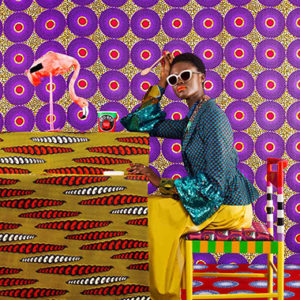While speaking on Malcom X at Harvard in 1982, Audre Lorde foregrounded the imperative of intersectionality in social movements. Whereas most people maintain several complex, interacting identities, popular discourse often fails to account for more than one at a time. Lorde, however, distinguished herself as a fierce advocate for acknowledging, validating, and incorporating the variation of identity and experience within the black community, particularly as it pertains to gender and sexuality. In defining her politics, Lorde invoked her own identity, making it a corroborating point in the case for intersectionality: “As a Black lesbian mother in an interracial marriage, there was usually some part of me guaranteed to offend everybody’s comfortable prejudices of who I should be,” (4). With this statement, Lorde speaks to the importance of recognizing how various social identities can reach a nexus point in one individual.
In Dirty Computer, Janelle Monáe employs an Afrofuturist narrative arc to epitomize Lorde’s doctrine of intersectionality. Continue reading “Janelle Monáe Learned from the 60s: Lorde’s Legacy in Dirty Computer”



